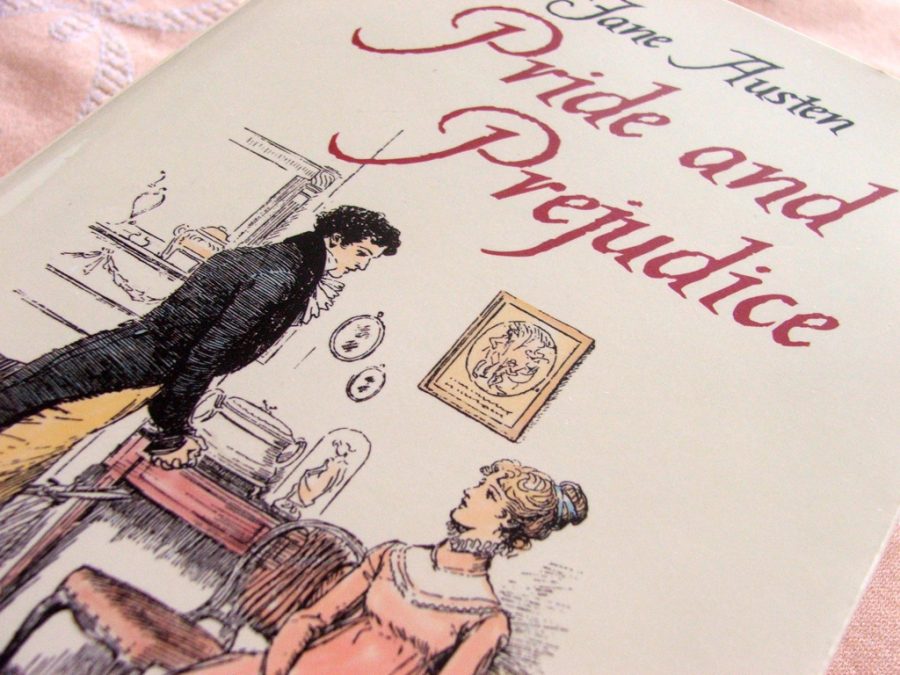Unravel the Pages: The lasting relevance of classics
Pictured on this Pride and Prejudice cover are Mr. Darcy and Elizabeth Bennet. More than just a romance novel, the book challenges the societal norms for women at the time.
April 10, 2020
Few published books stay on people’s shelves for hundreds of years and remain a topic of conversation in the modern day. In many circumstances, they end up being an assignment for English class that students do not look forward to. However, most classic literature is read today because it is able to keep up with today’s audiences. The humor, conflicts, and characters somehow find a way to be relatable and engaging despite being written in a period we consider to be very outdated.
Pride and Prejudice was published by well-known author Jane Austen in 1813, but its heroine Elizabeth Bennet was ahead of her time. Women in the Regency era of England were expected to be submissive, well-mannered, and ladylike, while Elizabeth proves herself as someone who unapologetically speaks their mind. She turns down a suitor she does not like without a second thought, for example, which sends the message to female audiences that they should speak up for themselves and do what is best for them, despite what others may choose instead. Other characters, if not surprisingly witty, are easy to connect to. Mr. Darcy’s awkwardness, Mrs. Bennet’s love for her daughters, the close friendship between Elizabeth and Charlotte, and how Elizabeth seems to be in the shadow of her perfect sister Jane, are all timeless feelings.
Even a book filled with all terrible, selfish characters, such as Wuthering Heights by Emily Bronte, remains readable because of the plot. It emits a dark and gloomy tone as we follow the lives of two forever interconnected families and how they live so isolated from everyone else. The events are gripping, tragic, and mysterious, almost like thrillers today. It was even banned in Canada for its depiction of human society this way, but now it can be read openly and enjoyably.
Nathaniel Hawthorne’s The Scarlet Letter sheds light on what we now consider to be the ridiculously strict life of the Puritans. The main character Hester is a woman excommunicated for adultery, and we watch her life turn upside down because of it. While in a modern lens the Puritans are not easily understood, this story puts you right in their shoes. We sympathize with Hester, and it is hard to see her suffer. Written in a style that can be read by many ages, this book offers insight into the Puritan lifestyle and captivates the reader with a strong female lead.
Classics might have a reputation as dusty, lengthy novels that are hard to read, but in reality, most are saved because they are still interesting. They are not necessarily history lessons, but stories that show how people are still very similar, even through changing times.












